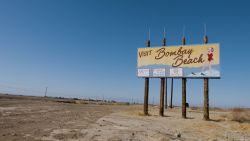On a typical weekend before the pandemic hit, about 2,000 people would flock to Jester King Brewery located on a scenic ranch on the outskirts of Austin, Texas.
They would pile into an old barn that once served as a chicken coop and sit atthe long community tables to drink farmhouse ales, enjoy food and listen to live music, said Jeffrey Stuffings, who co-founded the brewery in 2010 with his brother.
The scene of merriment resembled a “small beer festival every weekend,” Stuffings said.
But these days, that setup won’t fly. Concerns about a global pandemic largely shut down Jester King two months ago – limiting the brewery to curbside pickup of food and brews and retail sales of beer. The pandemic is causing a drastic rethink in how to conduct business going forward.
Luckily for Jester King, it had an expansive stretch of land at its disposal. Until now, most of its 165 acres weren’t open to the public.
For its reopening on Friday, Jester King took an inventive approach to adhere to physical distancing needs. It redesigned the sprawling property into a spacious park that boasts hiking trails and picnic tables stationed by a farm for growing hops, avineyard and a goat pen.
“We knew we had to open under a different model,” Stuffings said. “The model that we had previously done was just not feasible for this period.”
In the coming weeks, the brewery hopes to expand the hiking loop to two miles. Stuffings and crew have spent the past 10 weeks carving the nature trail.
“It’s got a lot of topography,” he said. “Actually, Central Texas is sometimes underrated for its topography, so it won’t be a beginner hike. It’ll be probably more in the intermediate range.”
The added space will allow physical distancing to be maintained, Stuffings said, noting that the brewery will operate on a reservations system and implement some hard stops during the day to allow for cleaning and sanitizing.
Jester King’s expansion falls in the company’s wheelhouse of operating close to the land. Its beers are made with well water, local grains, hops grown on site and fruits and vegetables from local farms.
It also marks another effort to be creative during the Covid-19 crisis, Stuffings said, living up to the brewery’s name, which was inspired by the wise fool in Shakespeare’s King Lear – a brewery founded to challenge convention and be a foil for Budweiser, the self-proclaimed King of Beers.
During the past 10 weeks, Jester King significantly narrowed an expected 75% loss to 40% by ramping up bread production, selling a sourdough starter pack and benefiting from upticks in off-site beer sales. The brewery also conducted Zoom beer talks, offered up coloring books for children and ran a label-making contest.
The pandemic and related closures have taken a heavy toll on small craft breweries that relied heavily on taproom foot-traffic and serving as community gathering places.
Breweries that have wide open spaces are now utilizing them to try to safely bring customers back.
Scratch Brewing operates on five acres in Ava, Illinois.
“We’re lucky to have a large outdoor area that has grown with tables and chairs over the years to be much larger than our indoor seating area,” Marika Josephson, co-founder, in an email to CNN Business. “That has benefits and drawbacks when the weather is good or bad but in a time when sitting inside close to others is not safe, we’re lucky to have a beautiful outdoor seating area that allows us to open sooner.”
Jester King’s Stuffings said safety will remain paramount and the brewery will adjust accordingly if the situation changes for the better or worse. For now, he said he’s grateful to have steady curbside business, a Paycheck Protection Program loan as well as a deferment of the principal and interest payments for previously existing Small Business Administration loans to help navigate the period.
“We’re trying to take a very long term approach looking at this where it could be difficult to manage small business cash flow well into 2021,” he said.
























